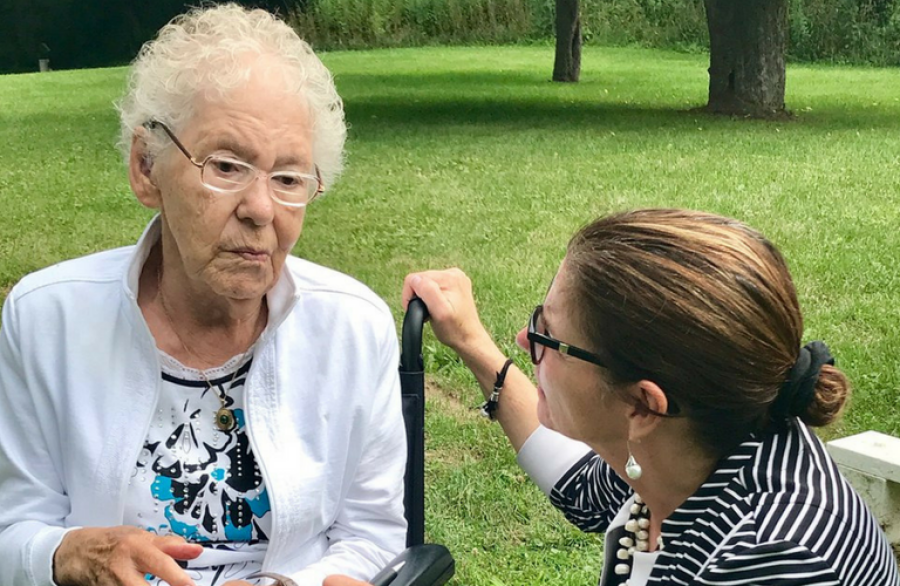Prime Minister Justin Trudeau recently announced the creation of a new ministry dedicated to seniors’ issues and I couldn’t be happier.
I’m both a feminist gerontologist by training and a young woman who grew up in a multigenerational home. I feel privileged in many ways that I was raised with four generations living together, but how we came to live under the same roof says a great deal about how badly we need more attention to elder issues in this country.
At 59 years old, my maternal grandmother was making minimum wage at a retail job and living with her dad in a trailer park outside of town. She complained of neck pain for weeks, but was told by doctors she was just “old” and sent home. One day, she collapsed at work from an undiagnosed brain tumour and became permanently disabled. Unable to work but still years away from a meagre public pension, her and her father moved in my parents, my brother and I. My father worked long hours to financially support two teenagers and two elders while my mother was in charge of physical and emotional assistance.
And my grandmother was one of the lucky ones.
Elders rarely get any play in policy discussions and they certainly don’t dominate headlines. Their issues barely register at budget time and they get token representation during election campaigns.
Seniors now outnumber children in this country while at the same time, women continue to outlive men. There are 20 percent more elderly women in Canada than elderly men.
Aging is a gendered phenomenon. At the same time, women across all ages are also more likely to be poor. We know that poverty is sexist.
Women make up the largest proportion of poor people around the globe and yet, on the rare occasions that we talk about the gendered nature of poverty, we focus overwhelmingly on young women and in particular, single mothers. And with good reason — 21 percent of single mothers are raising their children in poverty versus seven percent of single fathers. But what becomes of poor, single mothers as they age? Or women who spend their entire adult lives working with unequal pay and few private pensions?
I’m tired of the invisibility of elderly people, both in politics and in everyday life.
For too long, these issues have been ignored. And with no one at the helm of the national conversation on aging, it’s no surprise why. I am hopeful that a dedicated federal minister will help elevate these important conversations and create space for seniors to have a real voice in policy making.
I’m tired of the invisibility of elderly people, both in politics and in everyday life. We need age-friendly cities. We need widespread aging-in-place supports. We need poverty reduction programs that don’t simply focus on “working your way out of poverty,” a policy that does not work for single mothers, seniors and people with disabilities. We need to tell positive stories about aging and call out what I refer to as “elderly hysteria,” which is the framing of seniors as leeches on the health-care system and public pensions.
My grandmother deserved better. We all do. I am hopeful that the new minister will agree.














